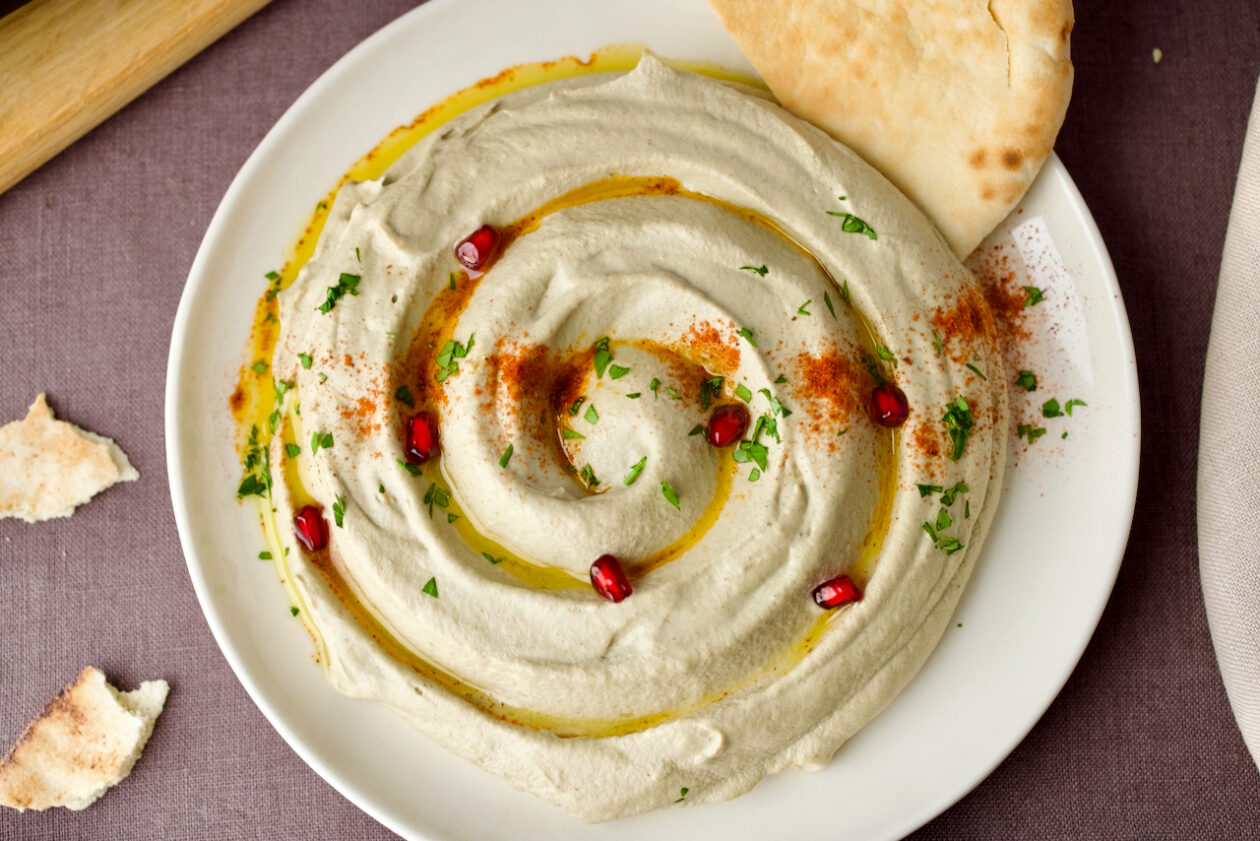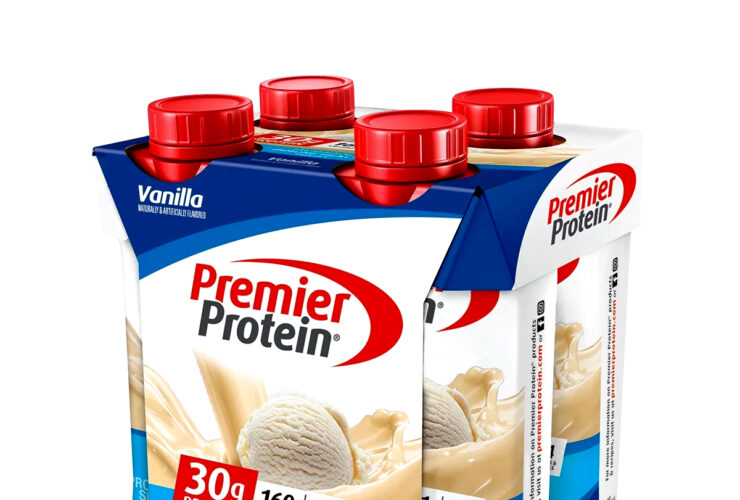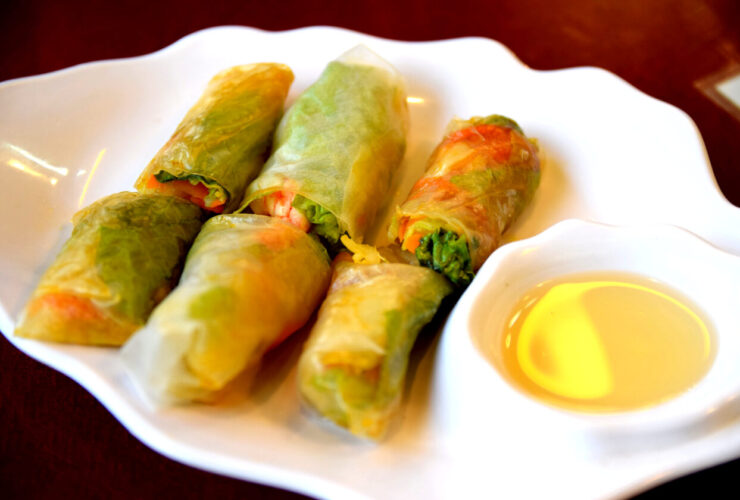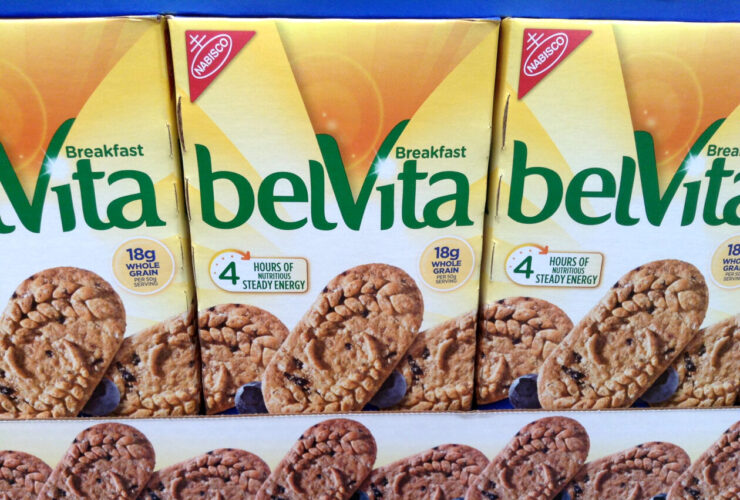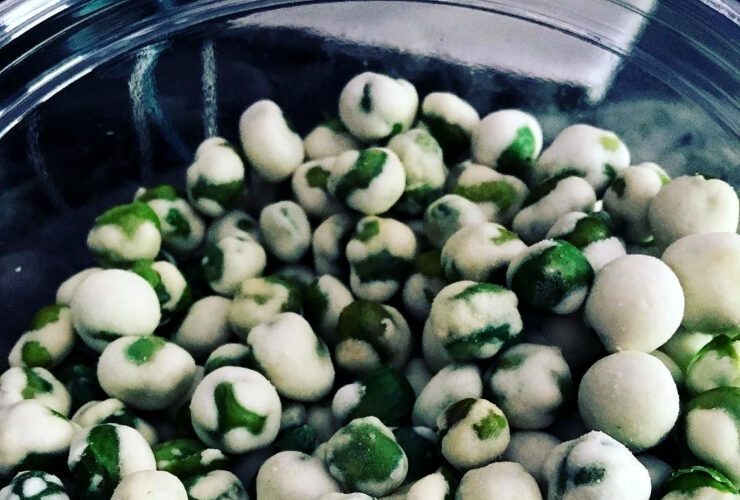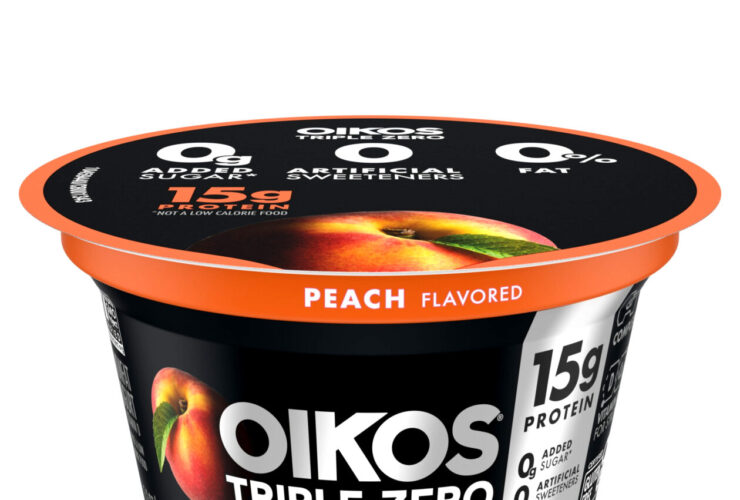Introduction
Baba Ganoush, a cherished Mediterranean dip rooted in the Middle East, has transcended borders to become a culinary icon. Its velvety texture and robust flavors have won over food enthusiasts, making it a versatile ingredient in many recipes. Whether served as a dip, spread, or condiment, Baba Ganoush offers a delightful fusion of flavors from different cultures. Amidst its global popularity, a pertinent question arises: ‘Is Baba Ganoush a Nutritional Powerhouse?’ This query forms the crux of our exploration of this renowned dip’s nutritional benefits and factors.
Baba Ganoush, a go-to choice for gatherings, meals, and snacks, owes its popularity to its adaptability and ease of preparation. Its Mediterranean heritage is a testament to a culinary tradition prioritizing flavorful blends and wholesome ingredients. Baba Ganoush has found its way onto menus worldwide, from casual picnics to upscale dining, showcasing its versatility and enduring appeal. By delving into Baba Ganoush’s nutritional profile, we aim to shed light on the potential health benefits of indulging in this beloved treat.
The question of Baba Ganoush’s impact on health sparks a thoughtful discussion, delving into its nutritional composition, potential health benefits, and recommended consumption. We aim to provide valuable insights that empower individuals to make informed dietary choices. By dissecting its components and reviewing scientific research, we strive to elucidate Baba Ganoush’s role in promoting overall health and its place in a balanced diet.
Nutritional Composition of Baba Ganoush
Baba Ganoush, celebrated for its rich blend of Mediterranean flavors, boasts a diverse nutritional profile derived from its wholesome ingredients. At its heart, Baba Ganoush features eggplant, tahini, olive oil, lemon juice, garlic, and a medley of spices. Each component contributes unique health benefits, creating a dip that tantalizes taste buds while nourishing the body.
Nutrition Facts (per 60g serving):
- Calories: Approximately 80-100 kcal
- Total Fat: 5-7g
- Saturated Fat: <1g
- Monounsaturated Fat: 3-4g
- Polyunsaturated Fat: 1-2g
- Trans Fat: 0g
- Cholesterol: 0mg
- Sodium: 120-150mg
- Total Carbohydrates: 8-10g
- Dietary Fiber: 3-5g
- Sugars: 2-3g
- Protein: 2-3g
Vitamins and Minerals:
- Vitamins: Contains vitamin C, vitamin B6, and folate
- Minerals: Includes manganese, copper, and potassium
Phytonutrients:
- Eggplant is a source of nasunin, a potent antioxidant.
This harmonious combination of ingredients creates a nutrient-dense dip that satisfies cravings while supporting overall well-being.
Health Benefits of Baba Ganoush
Baba Ganoush offers many health benefits, making it a valuable addition to a balanced diet.
Here are some key health benefits of consuming Baba Ganoush:
1. Rich in Antioxidants: Baba Ganoush contains antioxidants from eggplant(1), which help combat oxidative stress and reduce the risk of chronic diseases such as heart disease and certain cancers.
2. Low in Calories: With its low-calorie content, Baba Ganoush provides a satisfying and flavorful option for those watching their calorie intake, making it suitable for weight management.
3. Excellent Source of Fiber: Eggplant, the main ingredient in Baba Ganoush, is high in dietary fiber, promoting digestive health, regulating blood sugar levels, and aiding in weight loss by promoting satiety.
4. Heart-Healthy Fats: Including tahini, made from sesame seeds and olive oil in Baba Ganoush, provides heart-healthy monounsaturated fats(2), which can help lower LDL cholesterol levels and reduce the risk of heart disease.
5. Abundant in Vitamins and Minerals: Baba Ganoush is packed with essential vitamins and minerals, including vitamin C, B6, folate, manganese, copper, and potassium, supporting overall health and well-being.
6. Gluten-Free and Plant-Based: Being naturally gluten-free and plant-based, Baba Ganoush is suitable for individuals with gluten sensitivities or those following vegetarian or vegan diets, offering a flavorful and nutritious option.
7. Supports Brain Health: The antioxidants and healthy fats found in Baba Ganoush can support brain health by protecting brain cells from damage and supporting cognitive function and memory.
8. Promotes Skin Health: The vitamins and antioxidants present in Baba Ganoush contribute to healthy skin by fighting oxidative stress, promoting collagen production, and maintaining a youthful and radiant complexion.
9. Versatile and Delicious: Baba Ganoush is incredibly versatile and can be enjoyed as a dip with vegetables or pita bread, used as a spread in sandwiches or wraps, or incorporated into various dishes for added flavor and nutrition.
Incorporating Baba Ganoush into your diet can offer a range of health benefits, from promoting digestive health and supporting heart health to enhancing overall well-being. Enjoy this delicious and nutritious dip as part of a balanced diet to reap its numerous advantages.
Homemade vs. Store-Bought Baba Ganoush
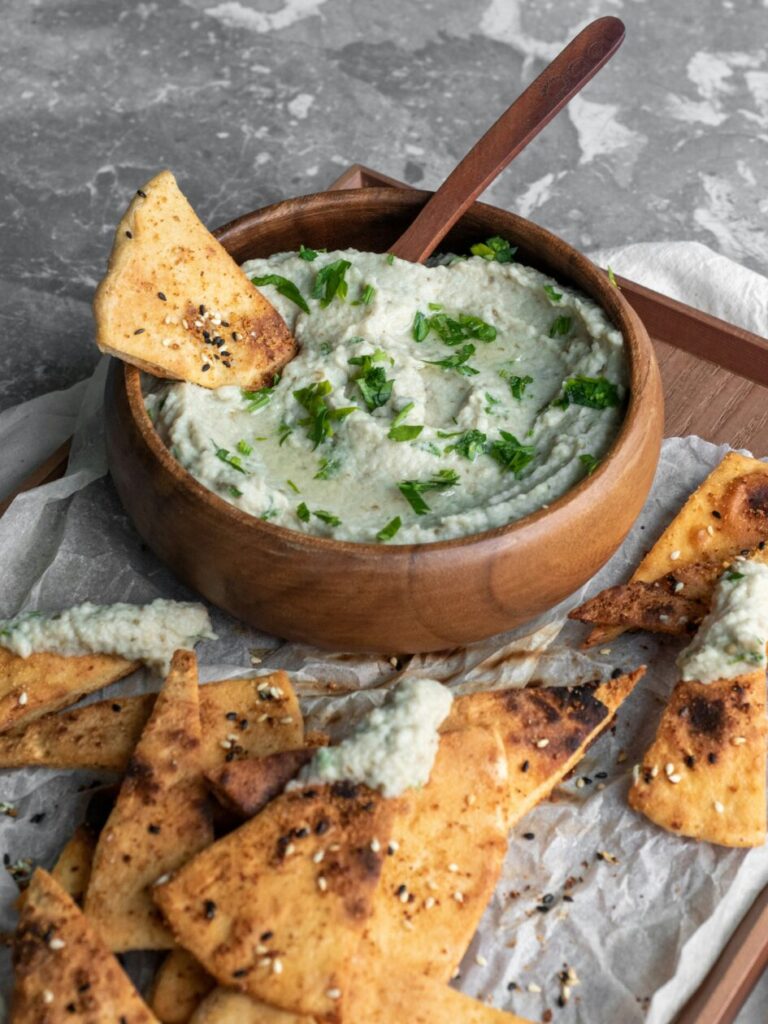
When deciding between homemade and store-bought baba ganoush, it’s essential to consider the advantages of each option. Crafting baba ganoush at home offers control over ingredient quality and freshness. You ensure a delicious final product free from unwanted additives or artificial flavors by selecting ripe eggplants, premium tahini, and high-quality olive oil.
Additionally, homemade baba ganoush allows customization of the flavor profile to suit personal preferences, whether you prefer a subtle hint of garlic or a burst of citrus from fresh lemon juice. Avoiding common additives like preservatives and excessive salt found in store-bought varieties, homemade baba ganoush emerges as a healthier alternative that supports overall well-being.
However, for those with busy schedules or limited culinary skills, store-bought baba ganoush provides a convenient solution without compromising taste or nutrition. When choosing store-bought options, prioritize reading labels and selecting products with minimal additives and preservatives.
Opting for organic or all-natural varieties further enhances the nutritional value of store-bought baba ganoush, ensuring a wholesome snack that aligns with health goals. By weighing the pros and cons of homemade versus store-bought baba ganoush, individuals can make informed decisions that cater to their lifestyle and dietary preferences while enjoying the irresistible flavors of this beloved Mediterranean dip.
Considerations for Allergies and Sensitivities
While Baba Ganoush is celebrated for its rich flavors and nutritional benefits, it’s essential to be mindful of potential allergens that may be present in this traditional Mediterranean dip. Two common allergens in Baba Ganoush are sesame seeds, typically in tahini, and garlic, a staple ingredient in many recipes. Consuming Baba Ganoush prepared with traditional recipes can pose health risks and discomfort for individuals with sensitivities or allergies to these components.
Alternative ingredient options are available for those navigating allergies or sensitivities to enjoy a safe version of Baba Ganoush. For instance, individuals allergic to sesame seeds can opt for tahini-free recipes or use alternatives like sunflower seed butter or roasted almond butter as a substitute.
Similarly, those sensitive to garlic can explore recipes that omit this ingredient or replace it with garlic-infused oil for a milder flavor profile. By experimenting with alternative ingredients, individuals with allergies or sensitivities can still indulge in the flavors of Baba Ganoush while prioritizing their health and well-being.
Furthermore, when purchasing Baba Ganoush from stores or restaurants, it’s crucial to carefully read labels and inquire about the ingredients used, primarily if you have known allergies or sensitivities. Some commercially prepared versions may contain additional ingredients or preservatives that could trigger allergic reactions. By communicating dietary restrictions and preferences to food establishments, individuals can ensure that they make informed choices and select options that align with their health needs. Ultimately, by being vigilant and proactive, individuals can safely enjoy the delights of Baba Ganoush without compromising their well-being.
Sodium Content and Health Implications
Baba Ganoush, while a flavorful and nutritious dish, may contain varying sodium levels depending on the ingredients used in its preparation. The primary sources of sodium in Baba Ganoush include salt added during cooking and seasoning, as well as any processed ingredients like store-bought tahini or canned vegetables. Excessive sodium consumption is linked to several health risks, including hypertension (high blood pressure) and an increased risk of cardiovascular diseases such as heart disease and stroke. Therefore, individuals need to be mindful of their sodium intake, particularly if they have existing health conditions or are at risk of developing them.
Individuals can take proactive measures to reduce their consumption when enjoying Baba Ganoush to mitigate the health risks associated with high sodium intake. Opting for homemade Baba Ganoush allows for greater control over the ingredients used, including the amount of salt added during preparation.
Additionally, selecting fresh, whole ingredients and avoiding processed or canned foods can minimize sodium intake. When seasoning Baba Ganoush, individuals can experiment with alternative herbs and spices to enhance flavor without relying solely on salt. By making these simple adjustments, individuals can savor the delicious taste of Baba Ganoush while promoting their overall health and well-being.
In conclusion, while Baba Ganoush can be a flavorful addition to a balanced diet, it’s essential to consider its sodium content and potential health implications. By being mindful of sodium intake, choosing homemade versions, and opting for fresh ingredients, individuals can enjoy the benefits of Baba Ganoush while minimizing the risks associated with excessive sodium consumption. Making informed dietary choices contributes to better health outcomes and empowers individuals to take control of their well-being.
Weight Management Considerations
When it comes to weight management, Baba Ganoush offers a compelling option due to its low-calorie density and high fiber content. With fewer calories per serving compared to many other dips and spreads, Baba Ganoush can be a satisfying choice for those looking to control their calorie intake without sacrificing flavor. The high fiber content further enhances its suitability for weight management, as fiber promotes feelings of fullness and can help regulate appetite. By incorporating Baba Ganoush into meals or snacks, individuals can increase their fiber intake while enjoying a flavorful and nutritious option.
To maximize the benefits of Baba Ganoush for weight management, it’s essential to practice portion control and mindful eating. While Baba Ganoush can be a healthy addition to a balanced diet, consuming excessive amounts may contribute to excess calorie intake. Therefore, individuals should be mindful of portion sizes and enjoy Baba Ganoush in moderation as part of a well-rounded meal or snack. Pairing Baba Ganoush with fresh vegetables, whole grain crackers, or lean protein sources can create a satisfying and nutritious combination that supports weight management goals.
When considering Baba Ganoush as part of a weight management plan, it’s crucial to consider overall dietary patterns and individual nutritional needs. While Baba Ganoush can be a nutritious addition to the diet, it’s essential to maintain a diverse and balanced intake of foods from all food groups to meet basic nutrient requirements. By adopting a holistic approach to nutrition and incorporating Baba Ganoush as part of a varied diet, individuals can enjoy its benefits while supporting their overall health and wellness goals.
FAQs
1. Is Baba Ganoush a healthy choice?
Yes, Baba Ganoush is a healthy choice. It is low in calories and carbohydrates, making it suitable for those watching their weight or managing blood sugar levels. It also contains fiber and antioxidants from the eggplant, which can improve digestion and protect against diseases.
2. Is Baba Ganoush suitable for vegetarians or vegans?
Yes, Baba Ganoush is suitable for both vegetarians and vegans. It is made primarily from eggplant and other plant-based ingredients, making it an excellent option for individuals following a plant-based diet.
3. Can Baba Ganoush be made gluten-free?
Yes, Baba Ganoush can be made gluten-free. The traditional recipe does not contain gluten, but it’s always important to check the ingredients used and ensure they are gluten-free to maintain a strict gluten-free diet.
4. How can Baba Ganoush be used in cooking?
Baba Ganoush can be used in various ways in cooking. It can be enjoyed as a dip with pita bread or fresh vegetables, used as a spread in sandwiches or wraps, or even incorporated into pasta dishes for added flavor and texture.
5. How long does Baba Ganoush last in the refrigerator?
Baba Ganoush can last in the refrigerator for 3-5 days when stored in an airtight container. It’s always best to consume it within this time frame for optimal freshness and flavor.
Conclusion
In conclusion, Baba Ganoush is a versatile, nutrient-rich option that complements a balanced diet. Throughout our exploration, we’ve highlighted its low-calorie density, high fiber content, and abundance of antioxidants, all contributing to its potential health benefits. By incorporating Baba Ganoush into meals or snacks, individuals can enjoy its delicious flavor and reap the rewards of its nutritional profile. However, it’s essential to approach consumption with moderation and mindfulness, ensuring that portions are appropriate and ingredients are selected wisely. Additionally, being attuned to individual dietary needs and preferences is crucial for optimizing the benefits of Baba Ganoush within the context of a diverse and personalized eating plan.
In summary, while Baba Ganoush can undoubtedly be considered “good for you,” it’s vital to remember that dietary choices are just one piece of the puzzle regarding overall health and wellness. By embracing a balanced approach to nutrition and incorporating Baba Ganoush alongside a variety of other wholesome foods, individuals can cultivate a culinary repertoire that is both nourishing and satisfying. So, whether enjoyed as a dip, spread, or accompaniment, Baba Ganoush offers a flavorful journey into Mediterranean cuisine, inviting individuals to savor its goodness while supporting their well-being.
References
Chin, K. B. (2021). Antioxidant Activities of Eggplant (Solanum melongena) Powder with Different Drying Methods and Addition Levels to Pork Sausages. Food Science of Animal Resources, 41(4), 715-730. https://doi.org/10.5851/kosfa.2021.e31
Sakketou, Eleni-Konstantina I, Georgios K Baxevanis, Nikolaos K Tentolouris, George D Konstantonis, Vaios T Karathanos, Georgios A Fragkiadakis, and Panagiotis T Kanellos. 2021. “Tahini Consumption Affects Blood Pressure and Endothelial Function in Healthy Males.” Journal of Human Hypertension 36 (12): 1128–32. https://doi.org/10.1038/s41371-021-00624-2.
Was this helpful?

Joseph Emb, RDN
Founder of StyleVitally.com | Registered Dietitian & Wellness Advocate
What I Cover:
I’m passionate about connecting nutrition science and everyday wellness to help people live healthier, more vibrant lives. I write about evidence-based nutrition, mindful eating, sustainable lifestyles, and holistic well-being at StyleVitally.com.
My Background:
The University of Texas in Austin, where I earned my Dietetics diploma, laid the groundwork for my nutrition and health career. My training and hands-on experience taught me the science and art of using nutrition to enhance health and well-being.
Professional Journey:
I’m an RDN with lots of experience. I’ve helped people seeking tailored nutritional recommendations in clinical settings and community outreach programs. My constant learning and professional development ensure that my recommendations are always based on the latest evidence.
Ethical Commitment:
My practice prioritizes integrity. My content is transparent and objective, following the most significant ethical standards. I can give my audience unbiased advice because I’m not affiliated with food businesses or industry associations. I want to help people make informed health decisions that match their values and ambitions.
Join Me on the Wellness Journey:
Join me on the path to vitality and well-being, whether facing nutritional issues, seeking sustainable lifestyle changes, or simply wanting a better, happier you. We’ll discover how diet, mindfulness, and holistic well-being can maximize your potential.


